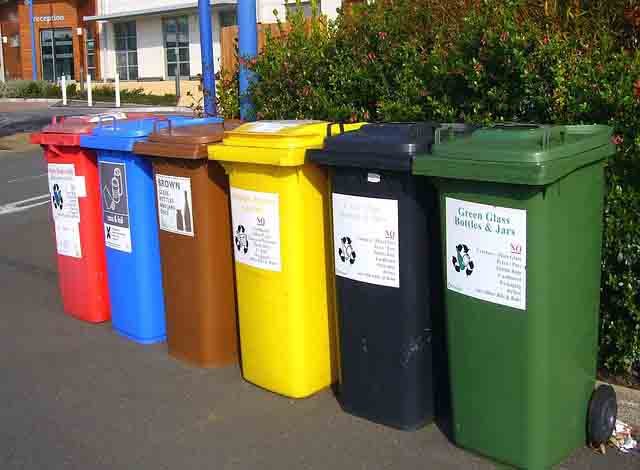Waste management is an essential aspect of our daily lives, which can have far-reaching consequences for both our environment and our health. Proper waste management involves reducing, reusing, and recycling waste in an effort to minimize its impact on the environment.
If not adequately managed, waste can pollute our water, land, and air, posing health risks to humans and animals. Additionally, improper waste management can contribute significantly to climate change, exacerbating the greenhouse effect and negatively affecting the planet’s overall health.
The three R’s, reduce, reuse, and recycle, serve as guiding principles for proper waste management. Reducing waste, for instance, involves buying less and only what is necessary, thereby reducing the amount of waste generated in the first place.
Reusing items involves extending their lifespan and finding other purposes for them, e.g., using refillable water bottles instead of single-use plastics. Recycling involves converting waste material into new products, reducing the need to extract virgin raw materials and conserving resources.
Understand the Benefits of Proper Waste Management
Proper waste management is a crucial aspect of maintaining a healthy and sustainable environment. It not only helps to keep our surroundings clean and hygienic but also has numerous economic, social, and environmental benefits.

By reducing the amount of waste we produce, reusing items commonly considered as trash, and recycling materials so that they can be repurposed, we can significantly reduce the amount of waste that ends up in landfills. This reduction of waste in turn helps to reduce the greenhouse gas emissions that are harmful to the planet.
Additionally, proper waste management practices create job opportunities in the waste management industry, foster community engagement in environmental protection efforts, and can help to save money for businesses and households alike.
Therefore, it is essential for individuals, businesses and governments to understand the benefits of proper waste management and try consulting waste management professionals in taking necessary steps to achieve it.
Establish a System for Sorting Waste
Establishing a system for sorting waste is a crucial step in proper waste management. It involves sorting waste materials into different categories based on their composition and potential for reuse or recycling. This process not only promotes environmental sustainability, but it also maximizes the efficiency of waste management facilities.
By separating recyclable materials from non-recyclable materials, resources can be conserved and waste can be properly disposed of, reducing the negative impact on our ecosystems and our health. Implementing a sustainable waste management system is essential in promoting a cleaner, healthier, and more sustainable environment for future generations.
Learn About Recycling Programs in Your Community
Another effective way to reduce waste in your community is to learn and utilize recycling programs available. Many cities and towns have their own recycling programs that collect and sort materials like glass, paper, plastic, and metals.
By participating in these programs, you are not only diverting waste from landfills, but also conserving valuable resources. It is important to familiarize yourself with the specific recycling guidelines and procedures in your community to ensure that you are recycling correctly and efficiently.
This may include separating recyclable materials from regular waste and determining which materials are accepted at the recycling center. By taking advantage of the recycling programs available to you, you can play a significant role in reducing the amount of waste that ends up in landfills and ultimately protect the environment.
Use Reusable Products
One of the most effective ways to minimize waste and contribute to proper waste management is to use reusable products instead of disposable ones. Reusable products can include cloth shopping bags, water bottles, coffee mugs, and food containers.
When we use these products repeatedly, we are drastically reducing the amount of waste that we produce. Additionally, when we opt for reusable products, we also conserve natural resources like water and oil, which are necessary for the production of their disposable counterparts.
By using reusable products, we can reduce our carbon footprint and contribute to a more sustainable future. Therefore, it is crucial to encourage individuals, businesses, and communities to adopt a reusable lifestyle and make this a priority in any waste management plan.
 Educate Others About the Importance of Waste Management
Educate Others About the Importance of Waste Management
Educating others about the importance of waste management is a crucial step in reducing our impact on the environment. Proper waste management techniques can help protect our air, soil, and water quality while also conserving natural resources.
One way to educate others is by spreading awareness about the three R’s of waste management: Reduce, Reuse, and Recycle. Encouraging people to reduce the amount of waste they produce, reuse items whenever possible, and recycle materials that cannot be reused can have a significant positive impact on the environment.
Additionally, educating others about the harmful effects of improper waste disposal, such as pollution and habitat destruction, can motivate individuals to take action and incorporate responsible waste management practices into their daily routines. By promoting waste reduction, reuse, and recycling, we can move towards a more sustainable future for generations to come.
To sum up, proper waste management is essential to reducing the negative impact of solid waste on the environment and public health. We need to work together to embrace the principles of reduce, reuse, and recycle to make the most of our resources and minimize waste production.
The current economic model of “take, make, use, and dispose” is unsustainable and must be replaced with a circular economy that prioritizes resource efficiency and sustainability.
By taking small steps in our daily lives, such as reducing our plastic usage and properly disposing of hazardous waste materials, we can make a significant difference in protecting the planet for future generations.



 Educate Others About the Importance of Waste Management
Educate Others About the Importance of Waste Management







